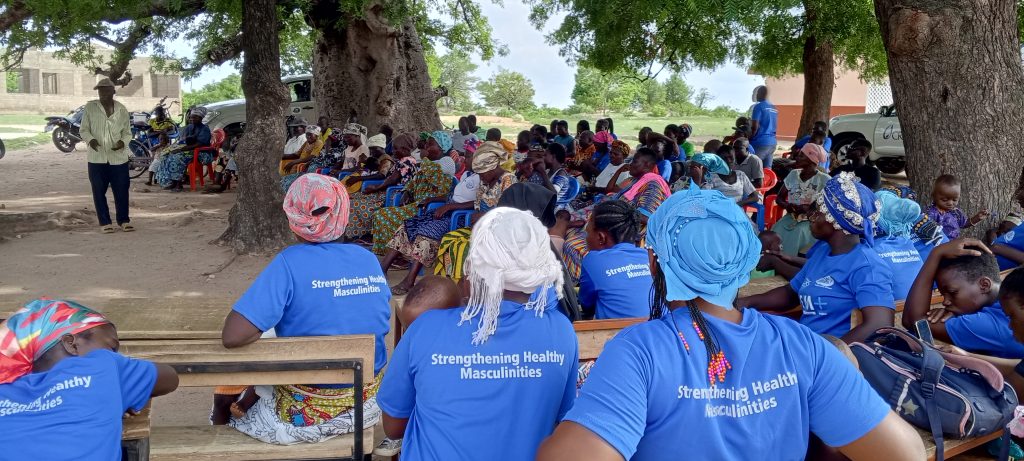By Gilbert Azeem Tiroog
Chania (U/E) July 2, GNA- The Catholic Relief Services (CRS) has sensitised spouses, their close relatives, and the youth in five border communities in the Upper East Region to challenge harmful gender norms and unequal power dynamics.
The 300 participants, drawn from Nania, Chania, Sakaa, Gware, and Nakolo communities in the Kassena Nankana West District were taken through gender-centered topics using the Journey to Peaceful Masculinity manual over a period of ten weeks.
The four-day programme discussed topics on healthy relationships, building supportive networks, power, violence, and men as caregivers, among others.
It aimed at transforming harmful gender norms and unequal power dynamics through the adoption and reinforcement of gender-equitable norms.
It was also to raise awareness and educate participants on the impact of traditional gender norms and stereotypes on individuals and society.
The training formed part of CRS’s two-year discretionary funded project, dubbed: “Gender Equitable Masculinities Plus (GEM+)” aimed at providing a more comprehensive learning experience for young men and women between 18 and 35 years in the border communities.
It is being implemented in partnership with the Youth Empowerment for Life (YEFL-Ghana).
The GEM plus project adds up to another ongoing CRS project named Prevention of Violent Extremism through Social Accountability in the Communities.
Madam Lilly Oseyda Jay, project manager of GEM+, CRS, addressing the media after a dialogue session with the participants in Chania Paga, emphasised that implementing the project in the communities had become necessary given the security threat in the subregion and the tendency of young people using their masculinity to join violent extremists to cause havoc.
There was the need to learn and relearn the concept of manhood, where the notion of the male figure is perceived as the author of violence in society, she said.
“This will help participants to challenge this perspective by reflecting on the harmful” effects of these socialized gender norms and the consequences they have on their lives,” Madam Jay said.
“Through the testimonies of the participants, we have come to understand that they are slowly moving out of the man box and the woman box and just having an open mind…”
“…learning to resolve conflict in a positive way by communicating among themselves as spouses, and the men are contributing to household chores and vice versa, and that is a way of strengthening healthy masculinity”.
Ms Samira Dawood, Project officer at YEFL, and lead for GEM+, stressed that the programme was to change participants’ behaviour to co-exist peacefully as families and spouses.
“The participants themselves signed commitment forms to show what harmful gender norms they would like to change, and they have already exhibited that.”
“But now we want to get full endorsement at the community level, and that demands collective efforts from traditional and opinion leaders.”
Mr Addi Awe, a participant, indicated that the project had been beneficial to him and his community as it helped shape relationships.

“I’m particularly grateful to CRS for this project because it has directly impacted my life. There were certain things that I used to do that disturbed the peace of my family, but these engagements, have shaped me to change.”
Mrs. Helen Apio, another participant, said: “Through this project, I have learned to control my temper, unlike before, and improved how I communicate with my husband, which makes him help me with certain household chores, unlike before.”
“So l thank CRS for bringing this life-changing project to our community.”
GNA